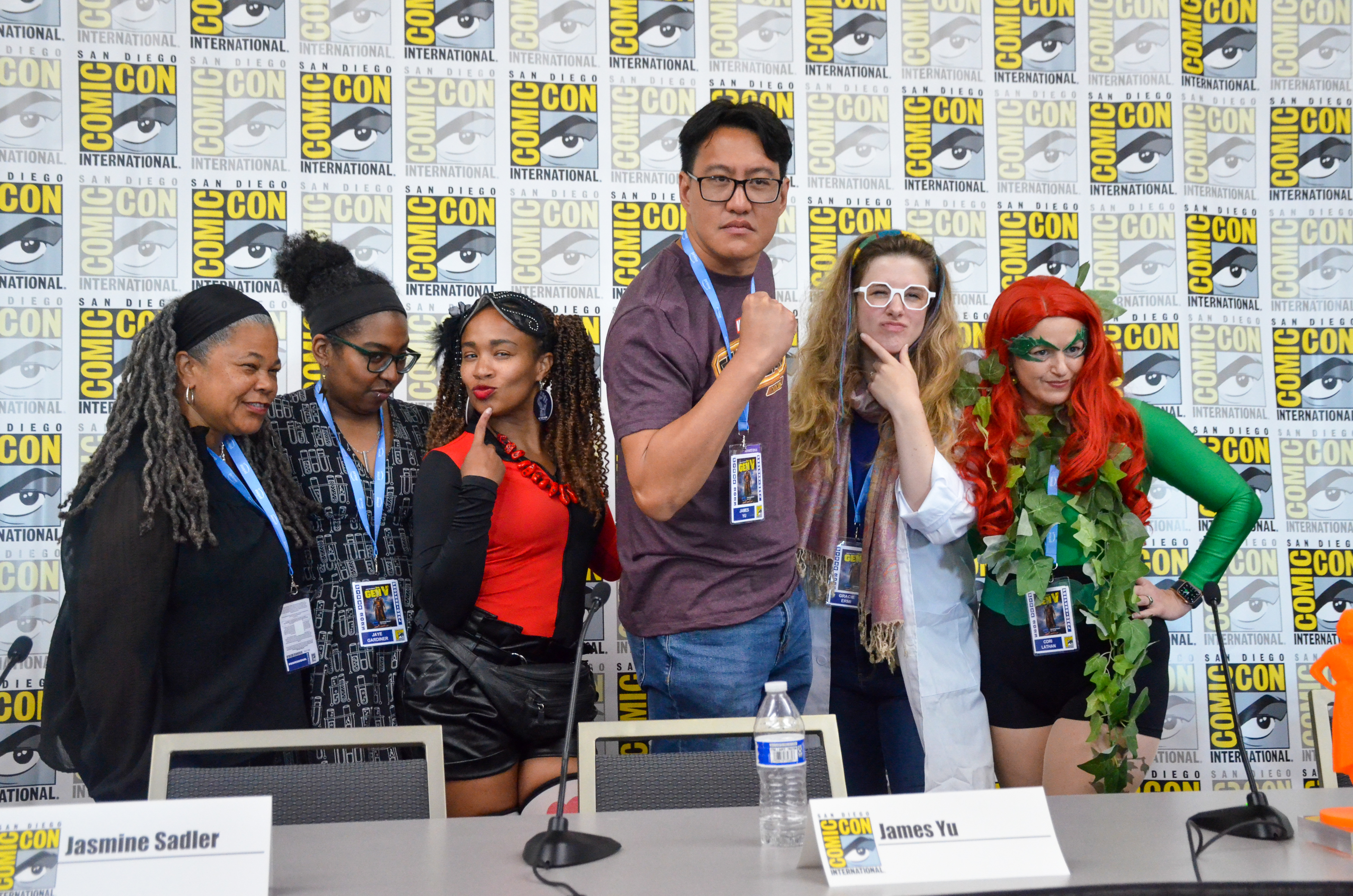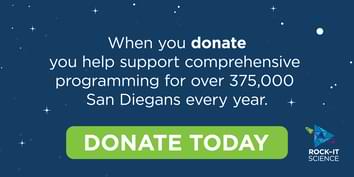
Fleet Comic-Con Panels Spotlight DEI

The Fleet Science Center’s return to San Diego Comic-Con International inspired visitors with panel discussions about representation and misrepresentation.
Ms. Marvel and the Power of Representation, on Thursday, July 20, delved into importance of representation in all areas of life, but especially in both STEM and popular culture. Moderated by the Fleet’s Emily Chung, the panel proved thought-provoking and motivating.
Eight panelists from the STEM realm and members of the Fleet’s New Science exhibition and ambassadors of the American Association for the Advancement of Science IF/THEN initiative brought their expertise, their personal stories and their commitment to furthering representation to a near-capacity, enthusiastic audience.
Ms. Marvel is the story of Kamala/Ms. Marvel, a Pakistani-American Muslim high school student who navigates both her place in her society and her superpowers. The panelists noted that stories like these are crucial so that everyone can feel visible, feel they belong, feel they can achieve.
“As the tagline for IF/THEN says, ‘if she sees it, then she can be it,” said Kay Savage, data scientist.
Chris Garza, M.D. and Ph.D. candidate, added, that Kamala/Ms. Marvel “didn’t see anyone to look up to and her parents didn’t really encourage her,” which the panelists noted is not uncommon for people who are denied visibility, representation and equity.
The panelists also agreed that we need stories like these because they’re not always available to us. With Ms. Marvel, “we are welcomed into someone else’s house, in this case, the house of South Asian culture,” said Sydney Hamilton, a sustainable flight demonstrator. “We don’t always get to hear these stories.
Scientist Jasmin Joestar echoed the importance of learning what we don’t always get to learn. Her parents were refugees from Iraq, and she noted that cultural markers were not always apparent in her community. “But now shows like Ms. Marvel are letting people understand important parts of Muslim culture, such as Ramadan and Eid. I’ll be honest—I cried to see someone like me on screen.”
When we hear stories that are not like our own, we can begin to connect to people who are not like us because we can then see that they’re not so different.
For instance, Anila Kanchan Madiraju, study director, metabolic and inflammatory diseases, commented on a familiar dynamic across cultures. “I appreciated, as a woman from Indian culture, the contention between Ms. Marvel and her mom.” She continued that the show can serve as a template for navigating these types of Indian familial relationships or any familial relationships.
In addition, the panelists agreed that Ms. Marvel represents in realistic, holistic way. “Trauma is part of it,” said Chanté Summers, synthetic medicinal chemist. “But so is joy, which is often not shown. When we get to tell a more positive story, that story is rewritten.”
It is indeed this visibility that can lead to more impactful change as we strive for diversity, equity and inclusion. “Visibility is at the core of advocacy,” said Jiwandeep Kohli, neuroscientist and clinical psychologist.
Everyone can be inspired by the metaphor of Ms. Marvel. “Because she finds her power, she can use it,” said Bea Mendez Gendica, program manager at Microsoft.
Key to representation is the work to be done to combat misrepresentation. As a response, the Fleet offered Dr. Evil: Scientists as Villains in Pop Culture, on Sunday, July 23, to explore how we can reverse stereotypes and misrepresentation.
This panel, moderated by the Fleet’s Mwenda KudumuBiggs, discussed the importance of understanding why scientists often are portrayed and villains and how we can develop a deeper appreciation of the real, positive work that scientists do.
The five panelists, ambassadors of the American Association for the Advancement of Science IF/THEN initiative, underscored the need for positive, encouraging representation in media and entertainment.
“As scientists and engineers, we know power, and the question is, are we going to use our power for good,” said Cori Lathan, tech inventor, engineer and entrepreneur.
As the discussion turned to artificial intelligence (AI), the panelists acknowledged that some fear surrounds any technology, especially any new technology, and now, as we’re seeing, AI. And the question of how to use AI is paramount. “We can do so much more with technology, and people are afraid of that,” Lathan added.
The key to assuaging these fears and reversing the evil scientist misrepresentation is, not surprisingly, positive representation. “Lack of representation feeds into the stories of [scientists and engineers] being seen as [villains],” said Gracie Ermi, machine learning specialist.
Therefore, we can think about solutions, said Jasmine Sadler, a dancing rocket scientist and STEAM entrepreneur. “It’s really about what problems are you trying to solve,” she said.
Another big component to consider is the scientists themselves. “Scientists are all human, just like everyone in this room,” said Jaye Gardiner, cancer biologist and illustrator.
As such, it’s helpful to think of the scientist out of the lab, said James Yu, senior scientist, early research and development. “My job isn’t my entire identity. We have human interests, too.”
In addition, the panelists emphasized the work they all do to ensure that they are making science accessible and understandable for everyone, including the science community. “If you are able to talk about your science without using the big science jargon words, it helps you understand your own science better,” said Gardiner.
The Fleet is honored to be a continued part of the year’s biggest pop culture, science fiction and fantasy event of the year, Comic-Con International, starting important conversations to better society.
